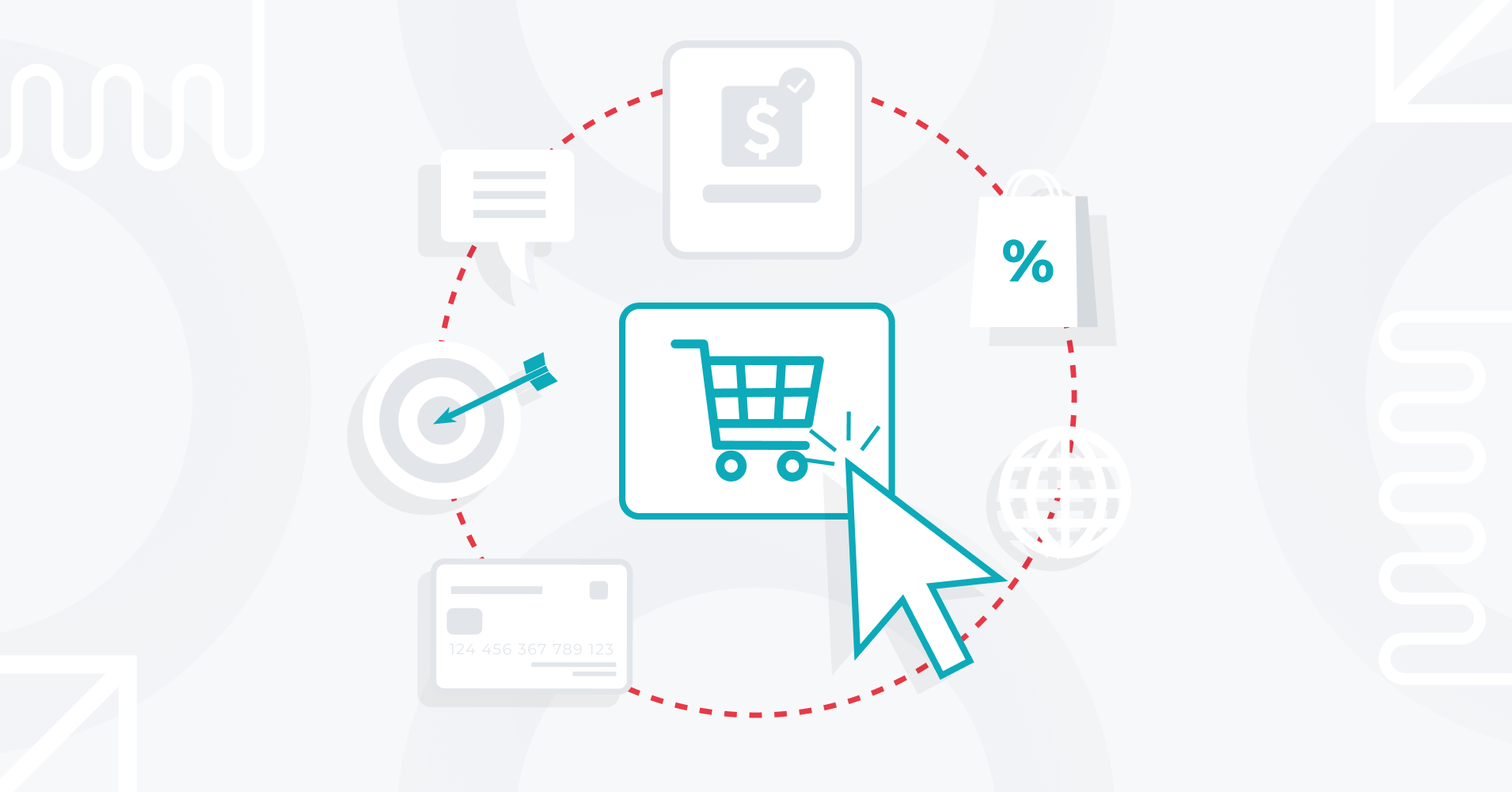Running a growing eCommerce business isn't easy. Orders are rolling in, but you're constantly juggling tasks—managing customer expectations, ensuring timely deliveries, and keeping your inventory in check. Meanwhile, your customers are demanding more. They want faster service, personalized experiences, and the convenience to shop whenever, wherever

This is where AI comes in as your secret weapon.
Think about the challenges you face: forecasting inventory, preventing fraud, or simply keeping up with customer inquiries. What if AI could automate those processes for you? By analyzing mountains of data, AI can help you predict customer behavior—knowing what they want before they do. It can also optimize your supply chain, ensuring your shelves are stocked with the right products at the right time, avoiding both overstock and out-of-stock situations.
Are you ready to see how AI can transform your eCommerce business?
10 Examples of AI in eCommerce and Retail
AI is all around us, from the personalized playlists on streaming services to smart home devices that learn our preferences. But how is the eCommerce industry harnessing its power to streamline daily operations and drive sales growth?
The answer lies in AI’s ability to adapt and learn, helping businesses not only meet customer demands but anticipate them. So, what exactly is AI doing behind the scenes to help online retailers thrive? Let’s explore how this transformative technology is giving eCommerce businesses the boost they need to stay ahead.
1. Personalized Product Recommendations with AI Algorithms
One of the most common use cases of AI in ecommerce is personalized product recommendations.
AI-powered tools leverage machine learning algorithms to analyze customer behavior, browsing history, and purchase patterns to suggest products that users are most likely to buy. This use of artificial intelligence not only enhances the customer experience but also increases sales for online retailers.
For example, it can recommend complementary products in real-time, leading to larger shopping carts.
2. AI-Powered Chatbots for Customer Support
AI chatbots have transformed customer service in the ecommerce industry. These virtual assistants provide 24/7 support, handling customer inquiries, assisting with product searches, and processing orders.
Chatbots also utilize natural language processing (NLP) to engage customers in real conversations, improving their overall online shopping experience. Implementing AI chatbots is a cost-effective way to manage customer support and enhance user engagement.
Read more: How Chatbots Can Transform Your Business?
3. Generative AI for Content Creation
Generative AI is another powerful application in the ecommerce world. From creating product descriptions to generating marketing copy, AI tools can automate content creation, saving businesses time and resources.
This type of artificial intelligence technology can also help ecommerce companies by optimizing SEO-driven product content, improving search engine rankings, and driving more traffic to ecommerce websites.
4. AI for Dynamic Pricing Strategies
Pricing can make or break an ecommerce business, and AI algorithms are now being used to optimize pricing strategies.
AI tools analyze competitor pricing, customer demand, and other market factors to suggest the best price points in real-time. This dynamic pricing ensures that online retailers remain competitive while maximizing profit margins.
Implementing artificial intelligence for pricing optimization can be a game-changer for ecommerce companies in highly competitive markets.
5. AI-Powered Visual Search for Product Discovery
With the rise of visual search, AI in ecommerce has enabled shoppers to find products using images rather than text. AI-powered visual search engines allow users to upload images and find similar products on an ecommerce platform.
This innovation simplifies the online shopping experience and helps ecommerce businesses cater to customers looking for specific items.
For example, customers can take a picture of a product they like and receive search results for similar items across various online stores.
6. Inventory and Supply Chain Optimization Using AI
AI technologies are not just enhancing the front-end of ecommerce; they are also transforming backend operations like inventory management and supply chain logistics. AI can help ecommerce businesses predict demand, manage stock levels, and prevent overstocking or stockouts.
By using artificial intelligence to optimize inventory management, online retailers can reduce costs and ensure smoother operations.
7. Predictive Analytics for Better Marketing Campaigns
Ecommerce companies can now leverage AI to drive more effective marketing campaigns through predictive analytics. AI analyzes customer data to predict future buying behavior, helping businesses design personalized marketing strategies that resonate with target audiences.
For example: artificial intelligence can recommend the best times to send promotional emails or run targeted ads, ensuring that the right message reaches the right customer at the right time.
8. Fraud Detection and Prevention with AI
The use of AI in fraud detection is crucial for ecommerce businesses, as it helps prevent fraudulent activities such as payment fraud and account takeovers. AI algorithms can monitor transactions in real-time, flagging suspicious behavior and alerting the system to potential fraud.
This ensures a safer online shopping experience for both retailers and customers, helping to build trust and loyalty.
9. AI for Enhanced Search Functionality
AI can improve the search functionality of an ecommerce website, making it easier for users to find exactly what they're looking for.
Through natural language processing and machine learning, artificial intelligence search engines understand user queries better and deliver more relevant results. By using AI to enhance search, ecommerce businesses can reduce bounce rates and improve conversion rates, as customers can quickly find and purchase the products they need.
10. AI in Image Recognition for Product Categorization
One of the more innovative use cases of AI in ecommerce is image recognition for product categorization. By analyzing images, AI-powered tools can automatically categorize products into the correct categories, reducing the need for manual input.
This AI solution ensures that products are accurately categorized, improving the shopping experience for users and making it easier for them to find the items they are searching for.

How Can AI Help in eCommerce?
AI can help ecommerce by providing personalized product recommendations, enhancing customer service with AI-powered chatbots, optimizing pricing through dynamic pricing algorithms, and improving search functionality with natural language processing. AI also boosts marketing through predictive analytics, streamlines inventory management, and enhances fraud detection. These capabilities improve customer experience, increase sales, and drive operational efficiency for ecommerce businesses.
How to Use AI in eCommerce?
New, advanced technologies can seem intimidating, especially when navigating the complexities of AI. As an ecommerce business owner, you might have several pressing questions, such as:
How much will it cost to implement and maintain AI technologies?
How difficult is it to integrate AI into existing systems?
Is AI scalable as the business grows?
How secure is the technology?
At Primotly, we understand that adopting new technologies can be daunting. That's why our team of technology experts combines deep technical knowledge with a clear understanding of business needs.
We take the time to listen carefully to each client, ensuring we offer tailored solutions that fit seamlessly into their operations. Whether you're looking to enhance customer experience, optimize processes, or embrace digital transformation, we specialize in custom software development, AI-powered solutions, migrations, and full-scale digital transformations.
Our goal is to provide the expertise and support you need to confidently integrate AI into your business operations. We believe that creating reliable and responsible technologies makes a positive impact on us all.
The Future of eCommerce with Artificial Intelligence
The future of ecommerce is undoubtedly intertwined with the continued development of AI technologies. As artificial intelligence continues to evolve, ecommerce businesses that embrace advanced tools will be better positioned to stay ahead of the competition and deliver superior online shopping experiences. Whether it's through generative AI, predictive analytics, or chatbots, AI in ecommerce is transforming every aspect of the industry.
AI is reshaping the retail industry and enabling eCommerce companies to achieve greater efficiency and profitability. By embracing AI-powered tools, online retailers can unlock new growth opportunities and deliver cutting-edge shopping experiences that keep customers coming back.
Are you ready to implement AI in your ecommerce business? Contact us to learn how we can help you transform your ecommerce platform and let's make a real change together!





















